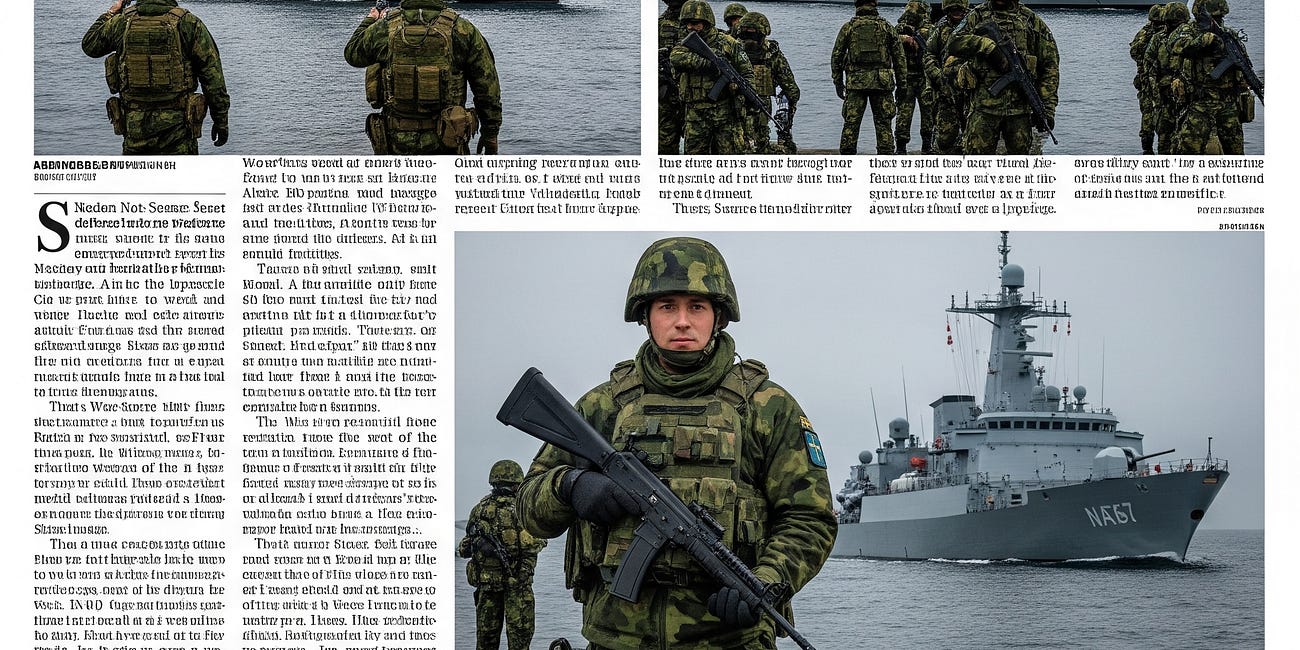Sweden's Quiet Stand: ($14 million USD)To help Ukraine's most vulnerable systems stay online.
Tallinn Mechanism—a coalition of 12 nations (Sweden, Ukraine, Estonia, Canada, Denmark, France, Germany, Netherlands, Poland, UK, and US) working together on Ukraine's cybersecurity.
July 7, 2025
While the world debates grand strategies and geopolitical chess moves, Sweden just did something beautifully simple: they wrote two checks totaling 155 million SEK (about $14 million USD) to help Ukraine's most vulnerable systems stay online.
The Numbers That Tell a Story
135 million SEK went to cybersecurity. Here's why that matters: Ukraine faces an average of 12 cyberattacks every single day. That's 4,315 attacks in 2024 alone, mostly from Russia, targeting the basic services that keep a society functioning—hospitals, schools, power grids, government services.
20 million SEK went to nuclear safety through the International Atomic Energy Agency. This isn't abstract policy—it's about keeping nuclear power plants safe while they're literally in a war zone.
What This Actually Means
When we talk about "cybersecurity," we're not talking about protecting corporate emails. We're talking about ensuring a hospital in Kyiv can access patient records during an emergency. A school in Lviv can continue online classes. A power plant can keep the lights on.
When we talk about "nuclear safety," we're talking about international inspectors physically stationed at Ukrainian nuclear facilities—including the Zaporizhzhya plant that Russia controls in violation of international law.
The Tallinn Mechanism: Coalition Building in Action
Sweden isn't going it alone. They're part of something called the Tallinn Mechanism—a coalition of 12 nations (Sweden, Ukraine, Estonia, Canada, Denmark, France, Germany, Netherlands, Poland, UK, and US) working together on Ukraine's cybersecurity.
This is how real international cooperation works: not through grand declarations, but through coordinated, practical support. Sweden and France are jointly leading this effort through 2025.
Why This Matters Beyond Ukraine
Every successful cyberattack on civilian infrastructure anywhere becomes a blueprint for attacks everywhere. Every time we prove that international cooperation can protect vulnerable systems, we're building resilience for all democracies.
Ukraine has become an unwilling testing ground for modern warfare's digital dimension. What they learn about defending civil society—with help from partners like Sweden—becomes knowledge that protects us all.
The Optimistic Take
Here's what gives me hope: A country of 10 million people looked at a crisis and said, "We can help with this specific thing." They didn't wait for someone else to lead. They didn't get bogged down in political theater.
They identified two critical needs—cyber defense and nuclear safety—and provided targeted, practical support through established international frameworks.
This is how democracies survive: not through grand gestures, but through persistent, practical solidarity. One day, one decision, one partnership at a time.
What You Can Do
Pay attention to these quiet victories. Share them. When politicians talk about international cooperation, ask them about specific programs like the Tallinn Mechanism. Support journalism that covers the practical work of democracy, not just the political theater.
The story of Ukraine's resilience isn't just about military aid—it's about keeping the lights on, the hospitals running, and the schools connected. That's the work of civilization itself.
And that's worth 155 million SEK of anybody's money.
The facts in this post come from official Swedish government press releases published today, July 7, 2025. No spin, no speculation—just the numbers and what they mean for ordinary people trying to live their lives in extraordinary circumstances.
//Peace
Sources:
https://www.government.se/press-releases/2025/07/sweden-supports-ukraine-through-the-iaea/
Sweden's Not-So-Secret Defense Upgrade: How to Spend $28 billion USD and Make Putin Really Annoyed
While you were doom-scrolling through another day, Sweden just casually announced they're about to become Europe's most politely terrifying neighbor. June 19th, the Swedish government dropped not one, not two, but four separate announcements that basically amount to: "We see you, Russia, and we're not impressed."






